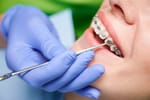Breast implant surgery is a highly personal and life-changing decision. For many, it offers confidence and the opportunity to achieve a desired look.
However, as with any surgical procedure, the success of the experience depends on preparation, understanding what to expect, and following the right actions during recovery.
If you're considering or preparing for breast implant surgery, this article will guide you through eight vital tips to make the process as smooth and stress-free as possible.
1)) Choose The Right Surgeon
Selecting a qualified and experienced surgeon is the most critical first step. Look for board-certified plastic surgeons with a proven track record in breast implant procedures.
Schedule consultations with a few surgeons to find one who makes you feel comfortable and confident in their expertise.
Questions to Ask During Consultations:
- How many breast implant surgeries have you performed?
- What material and implant shapes do you recommend for my body type?
- Can I see before-and-after photos of previous patients?
Tip: Verify credentials with trusted institutions, such as the American Society of Plastic Surgeons.
2)) Set Realistic Expectations
Breast implants can enhance your appearance, but it’s essential to maintain realistic expectations.
Understand that results will vary based on your body’s natural anatomy, implant size, and shape.
During your consultation, ask your surgeon for detailed explanations and even request a digital simulation or a "sizer fitting" to visualize potential outcomes.
Reminder: Your goal should be to enhance your natural beauty, not to chase perfection.
3)) Follow Pre-Op Instructions Diligently
Your surgeon will provide pre-operative instructions, such as avoiding alcohol and certain medications, and which foods to eat or avoid leading up to surgery.
Follow these guidelines carefully to minimize risks and complications.
Some common pre-operative tips include:
- Discontinue smoking at least 2–4 weeks before surgery. Smoking can interfere with proper healing.
- Avoid blood-thinning medications like aspirin unless your surgeon advises otherwise.
- Arrange for transportation on surgery day if sedatives will be used.
4)) Prepare Your Home For Recovery
Post-surgery recovery can be physically taxing, especially during the first few days.
Prepare your living space beforehand to ensure maximum comfort.
Recovery Essentials Checklist:
- Pillows or a wedge to support an elevated sleeping position.
- Easy-to-wear clothing, such as front-zip bras or button-up shirts.
- Pre-made meals or snacks to minimize physical effort in the kitchen.
- Prescribed pain medications and over-the-counter supplies (like ice packs).
- A trusted friend or family member is available to assist you for the first 24–48 hours.
5)) Rest And Follow Post-Op Guidelines
Proper rest and compliance with post-operative care are key to a successful recovery.
Your surgeon will provide specific instructions regarding bandages, drains (if applicable), and activities to avoid.
Typical Post-Op Practices Include:
- Wearing a surgical bra or compression garment to reduce swelling.
- Keeping incisions clean and dry.
- Avoiding exercise, heavy lifting, and strenuous activities for at least 4–6 weeks.
Pro Tip: Follow up regularly with your surgeon to monitor healing progression and address any concerns.
6)) Monitor Your Body’s Signals
Your body will tell you how it’s responding to the surgery. While some discomfort, bruising, and swelling are common, be aware of signs that may indicate complications, such as excessive pain, redness, or fever.
Contact your doctor if you notice any of the following:
- Unusual discharge or pus from incision sites.
- Persistent swelling or pain that worsens over time.
- Difficulty breathing or chest pain.
The earlier potential complications are identified, the better equipped your surgeon will be to address them.
7)) Avoid Smoking And Alcohol During Recovery
Smoking and drinking can significantly hinder the recovery process. Nicotine narrows blood vessels, delaying wound healing and increasing the risk of infection.
Alcohol can interfere with medications and exacerbate swelling.
Wait until your surgeon gives you the green light before reintroducing these substances, if at all.
8)) Be Patient With The Results
It’s important to remember that your final results won’t be visible immediately after surgery.
Swelling and settling of implants take time, often several weeks to months.
The "drop and fluff" process, during which the implants gradually settle into a more natural position, can vary from person to person.
Stay patient, trust the process, and attend follow-up appointments to ensure a beautiful outcome.
Conclusion
Breast implant surgery can be a rewarding experience, but preparation and aftercare are critical to a smooth recovery and optimal results.
Choosing a skilled surgeon, adhering to pre- and post-op instructions, and being mindful of your body are all steps that will help you achieve your desired outcome.
Interested in connecting with experts to learn more about the procedure?
Reach out to reputable plastic surgeons in your area for tips on surgery preparation.
A little homework goes a long way in ensuring you have a positive and fulfilling experience.
Download Our Free E-book!








